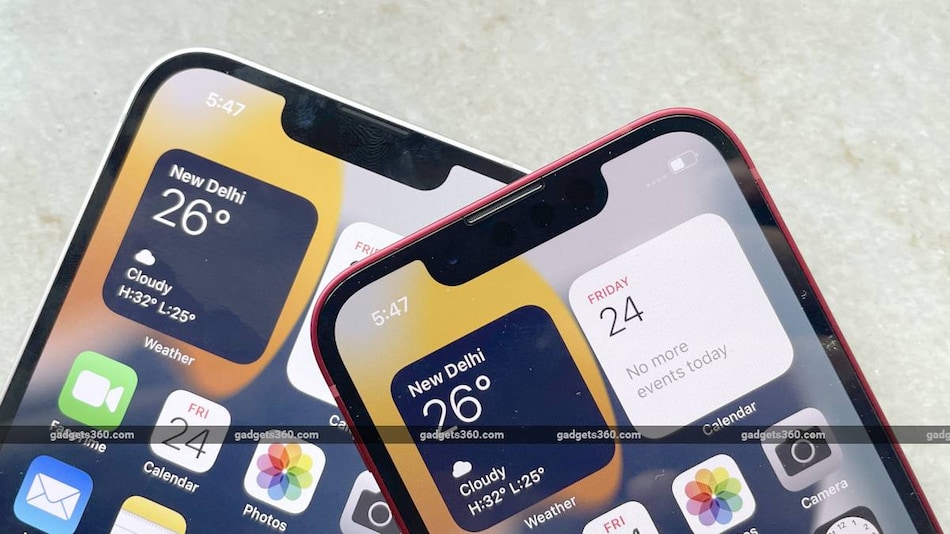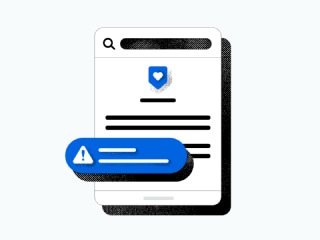- Home
- Mobiles
- Mobiles News
- Apple to Release Software Update for iPhone 13 to Allow Third Party Screen Replacements Without Breaking Face ID
Apple to Release Software Update for iPhone 13 to Allow Third-Party Screen Replacements Without Breaking Face ID
Exact timings of the iPhone 13 update are yet to be announced, though.

iPhone 13 carries a microcontroller that helps determine third-party screen replacements
iPhone 13 was recently found to completely disable its Face ID functionality if a user goes for its third-party screen replacement. That particular move by Apple was believed to be deliberate and one of its latest attempts to limit third-party repairing. The Cupertino company now seems to be addressing those concerns over rigid repairability restrictions by bringing a software update for the iPhone 13. It will enable Face ID to continue to operate in case the screen is replaced with a third-party replacement.
Apple told The Verge that it will release an update that will allow users to continue using Face ID on their iPhone 13 handsets after a third-party screen replacement. The exact timeline of the update is yet to be revealed.
DIY tutorial website iFixit earlier this month found that Apple was restricting iPhone 13 users from replacing its screen at a local shop by disabling Face ID. The site said that the issue was not limited to a particular iOS version and existed even on the latest iOS 15.1.
The lockdown is unique to the iPhone 13 and is difficult to understand as the Face ID module is entirely separate from the screen. Interestingly, Apple uses the microcontroller available on the display to help determine third-party replacements, and then disable Face ID. This would force an iPhone 13 user to visit an Apple authorised repair centre if they didn't want to lose the unrelated functionality. Authorised service centres have the software tool that allows the new microcontroller to be associated.
The team at iFixit found a workaround where the repairability is possible by moving the original microcontroller from the original screen onto its replacement. But that process requires a sophisticated repairing setup where microsoldering is available. It isn't something that you will commonly get at most of your nearby repair shops.
iFixit calls Apple's back off a “tactical achievement” for the repair market as it will allow local shops to fix the displays of the iPhone 13 — without breaking Face ID and directing consumers to visit an Apple authorised service centre.
“Apple — and the many companies it inspires — will advance again with more parts lockdowns, more feature reductions, more reasons why only their profitable repair centres can do this work. Repair shops are still looking at a future that involves more microsoldering, more time, and possibly tighter profit margins, as they compete against a company that can fix its own firmware blocks from the cloud,” the site said.
Get your daily dose of tech news, reviews, and insights, in under 80 characters on Gadgets 360 Turbo. Connect with fellow tech lovers on our Forum. Follow us on X, Facebook, WhatsApp, Threads and Google News for instant updates. Catch all the action on our YouTube channel.
Related Stories
- Samsung Galaxy Unpacked 2026
- iPhone 17 Pro Max
- ChatGPT
- iOS 26
- Laptop Under 50000
- Smartwatch Under 10000
- Apple Vision Pro
- Oneplus 12
- OnePlus Nord CE 3 Lite 5G
- iPhone 13
- Xiaomi 14 Pro
- Oppo Find N3
- Tecno Spark Go (2023)
- Realme V30
- Best Phones Under 25000
- Samsung Galaxy S24 Series
- Cryptocurrency
- iQoo 12
- Samsung Galaxy S24 Ultra
- Giottus
- Samsung Galaxy Z Flip 5
- Apple 'Scary Fast'
- Housefull 5
- GoPro Hero 12 Black Review
- Invincible Season 2
- JioGlass
- HD Ready TV
- Latest Mobile Phones
- Compare Phones
- Samsung Galaxy S26+
- Samsung Galaxy S26 Ultra
- Samsung Galaxy S26
- iQOO 15R
- Realme P4 Lite
- Vivo V70
- Vivo V70 Elite
- Google Pixel 10a
- Asus TUF Gaming A14 (2026)
- Lenovo Yoga Slim 7i Aura Edition Gen 10 (14 Inch)
- Infinix Xpad 30E
- Brave Ark 2-in-1
- AI+ Wearbuds
- AI+ NovaWatch Kids 4G
- Xiaomi QLED TV X Pro 75
- Haier H5E Series
- Asus ROG Ally
- Nintendo Switch Lite
- Haier 1.6 Ton 5 Star Inverter Split AC (HSU19G-MZAID5BN-INV)
- Haier 1.6 Ton 5 Star Inverter Split AC (HSU19G-MZAIM5BN-INV)
















